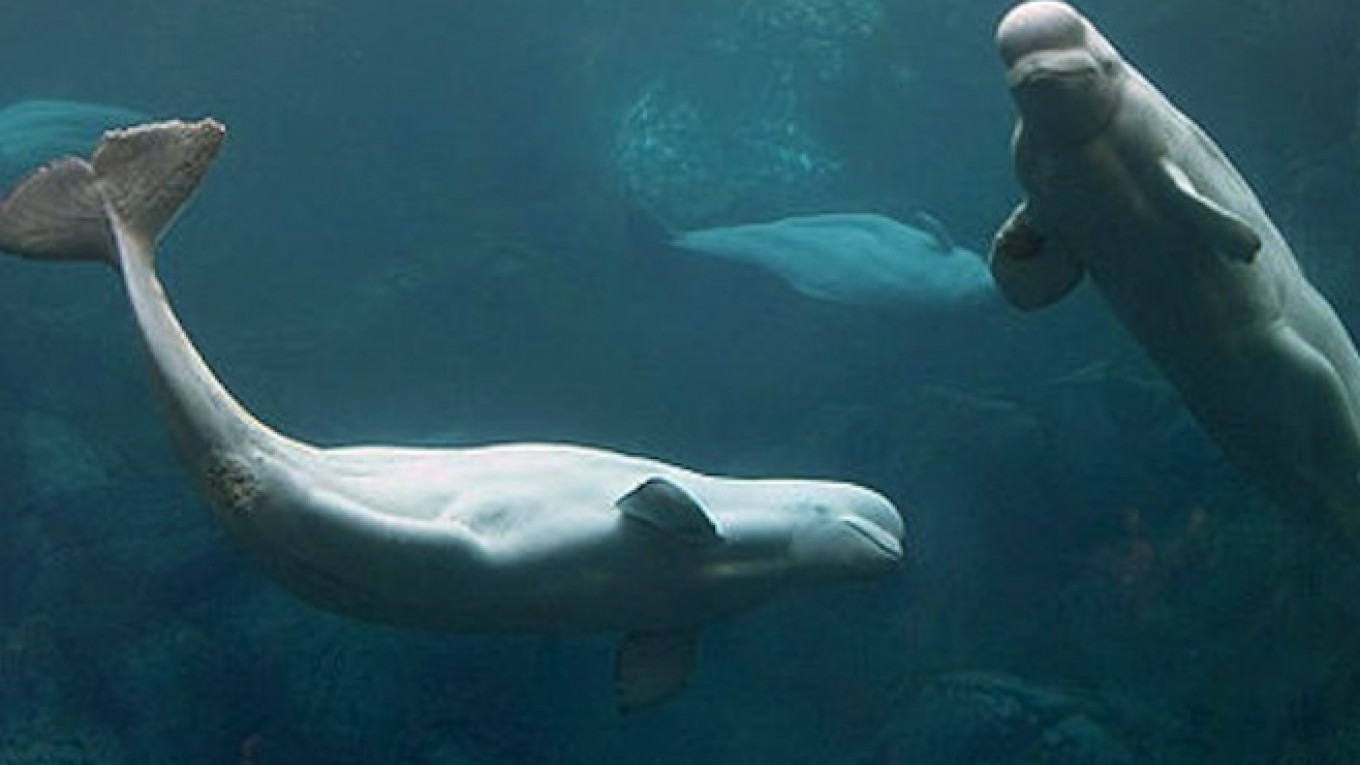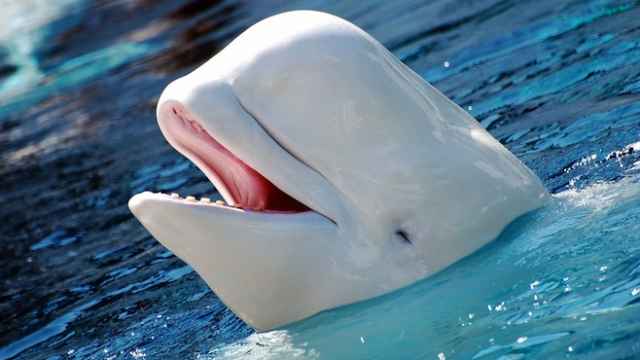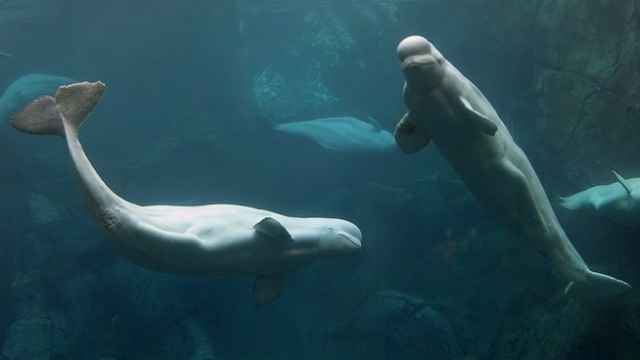ATLANTA — A U.S. court hearing on Friday on the fate of 18 beluga whales captured in Russia pitted federal regulators against the Georgia aquarium seeking to bring them to the United States.
U.S. environmental officers have said moving the whales to the United States would hasten the depletion of the wild population and violate the Marine Mammal Protection Act.
"No matter how you slice the data," the whale population can't handle the losses from capture for display in zoos and aquariums, said Clifford Stevens, a lawyer for the government.
The Georgia Aquarium in Atlanta, which is suing the National Oceanic and Atmospheric Administration (NOAA) fisheries service, says that its efforts will promote education and conservation.
The aquarium disputed the government's calculations of whale populations and the numbers dying, whether from hunting, capture in fishing nets, climate factors or pollution.
"The defendants have cooked the books on the numbers," said Aquarium lawyer George Mannina, arguing that the local Russian population is healthy. "They've created a burden that no one could ever meet."
Also known as white whales, belugas normally swim in Arctic or sub-Arctic waters and are classified as endangered in some areas and as "near threatened" worldwide, according to the aquarium.
The aquarium sued the government in September 2013 for the right to acquire the whales, captured in 2006 off the coast of northern Russia in the Sea of Okhotsk and currently in the care of Russian scientists.
This was the second time the case had appeared before U.S. District Judge Amy Totenberg, who has yet to rule on arguments heard last August when the aquarium sought access to government documents that led to the denial of its permit.
If the permit is denied, the whales' fate will be decided in Russia. A court decision is not expected for several months.
Up until March 2013, the project seemed to have the green light from NOAA, according to court filings by the aquarium.
"Agencies do change their minds sometimes," Stevens said.
If the aquarium, which already has three belugas, brings the whales to the United States, some would remain in Atlanta on display and the others would go to facilities across the country including SeaWorld parks, the permit application said.
SeaWorld has come under scrutiny for its killer whale shows.
Two baby beluga whales born at the aquarium have died since 2012, although their deaths have not been raised in the case.
A Message from The Moscow Times:
Dear readers,
We are facing unprecedented challenges. Russia's Prosecutor General's Office has designated The Moscow Times as an "undesirable" organization, criminalizing our work and putting our staff at risk of prosecution. This follows our earlier unjust labeling as a "foreign agent."
These actions are direct attempts to silence independent journalism in Russia. The authorities claim our work "discredits the decisions of the Russian leadership." We see things differently: we strive to provide accurate, unbiased reporting on Russia.
We, the journalists of The Moscow Times, refuse to be silenced. But to continue our work, we need your help.
Your support, no matter how small, makes a world of difference. If you can, please support us monthly starting from just $2. It's quick to set up, and every contribution makes a significant impact.
By supporting The Moscow Times, you're defending open, independent journalism in the face of repression. Thank you for standing with us.
Remind me later.






